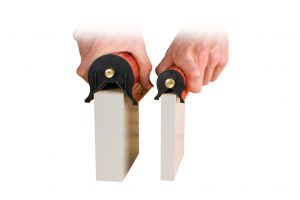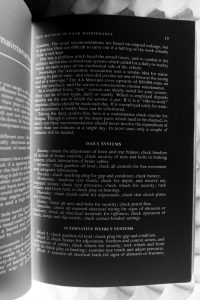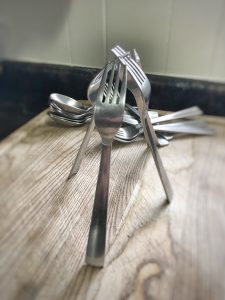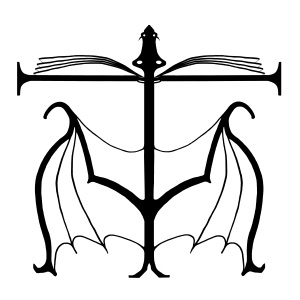Constraints of Genre Complexity
Are some genre better suited for self-publishing? Yes, yes they are. There are several key considerations—but your first question needs to be, “Am I eventually planning on supporting myself with my fiction writing as my sole income?” If the answer is no—then you may not need to worry about the possibility of a bad match between your chosen genre and publishing route. However if you do want writing to be a career then you need to make sure you are making well-reasoned choices about the fit between your publishing path and genre complexity.

Complex Genres Align with Traditional Publishing
Your imaginative Epic Fantasy, elaborately reasoned Science Fiction, or deeply researched Historical Fiction may not find all publishing routes equally suited.

Genre complexity demands continuity—but usually sows chaos. Discontinuity requires perspective to spot and fix—this means professional editing, in many cases multiple different passes by various types of specialist editors. This is expensive. But the good news is your publisher will pay for it—unless you self-publish. Editing price is per word, not per work. A five hundred page doorstop increases both your time frame to publish and the expense of editing.

Pace of Publication
Thick tomes aren’t written in a day—or sometimes even a year. Complex books usually require more premise, more plot, more research. They aren’t as quick to dive into or to write, word for word, as a simpler book. Also, complex genres generally require increased word count to accommodate the added depth and complexity. Editing won’t be just other people’s problem—you will need to revise that monster multiple times before you ever take it to a paid professional for polishing. When you sit down to edit your behemoth it won’t be fast. The number of editing passes—and their difficulty, not to mention length, will also be worse for the novelist writing a complex genre than if they’d decided to pen essentially the same story in a less complex format.

Traditional publishing gives you someone to encourage you to keep slogging to meet those deadlines, paid editors, and more opportunities for professional feedback. Feedback can hurt, but it may be the most valuable resource you get from a publisher. Solid feedback on the viability of your premise before you start writing could save you years of frustrating, fruitless effort. If someone had told me not to write the wicked cool, doorstop novels first I’d probably already be published.

The World Reached A New Era While You Were Writing.
Traditional Publishing Favors Longer Books—Self-Publishing Favors Shorter Books

Book length matters for publishing route.
Traditional publishers like things of the expected length for your genre. A book of an expected size will appeal more to readers in physical bookstores. If you tend to write books of the expected length for your genre you’ll be more attractive to a traditional publisher.

Self-publishing is still possible for standard length books, but as a self-published author you’ll be focused more on e-sales where book length generally matters less. However, that invisibility of book length can make e-publishing much more attractive for shorter books and even novellas. A “thin” book that might not compete well in a physical book store might still do well on Amazon.

“Save The Trees” somehow became “Save The Electrons”
Where Have All The Pages Gone?
Reader Satisfaction Spells Success
The question is: do your “thin” books leave readers satisfied enough to want more? The strategy of thin books is in serial sales.

E-success is all about your backlist. Getting someone who’s never heard of you to purchase a book is supposed to be the hard part. If they read one title and then don’t purchase the rest of your series, you’ve wasted all the effort of converting a raw reader to a buyer. You didn’t capitalize on the potential for repeat sales. That’s a tragedy.
The Epic Novella Conundrum
But isn’t an “epic novella” an oxymoron? How do I world build on a grand scale in a novella?
Frankly, I don’t like writing novella’s. They just don’t feel like the right form factor for my genre.

You’re right—not all genres thrive as serial novellas. Epic Fantasy readers probably won’t be as satisfied with novellas in general—they like the world building too much. The same holds true for Historical Fiction, and lots of Science Fiction. Book length and the requisite genre complexity of world building tend to be tied at the hip. If you tell me the vampires are just vampires, if you don’t even bother to explore which myths are true and which are hogwash, if I don’t care about your world building—yawn, put the book down, never try another from that author.

So your genre and its general word count may predispose your choice. Also, your tendencies as a writer—to brevity or expansive breadth—may make the choice rather obvious.
A Venue Of Speed Demons

Have you heard me type? It’s like the crescendo of a Wagnerian opera. Waterfalls of notes, torrents of typing. I defy you to say I can’t do it! Speed can make length doable. Epic self-pub will happen!

If that’s your crusade, and your skill-set—you might pull it off.
It’s not mine. I can type fast—particularly if I’m enraged at work and I’m using a wall-o-text to beat down my opponent over IM. I can speed-type rules and company policy at you with the best of them. But that’s generally not how I write fiction. I do get going at times, but particularly during editing, it’s all about finesse—a lot of consideration, a dozen different ways to restructure a sentence for best effect. The epic self-pub is an endeavor I hesitate to attempt.
In A Game Of Speed Only The Fastest Win—But There Are Other Games
How fast do you write a book? How fast do you edit it? If writing a book will take you one or two years, don’t worry, that’s normal—for traditional publishing.
You’ll never survive at that rate with self-publishing though.

Traditional publishing will benefit you if your book completion rate is every six months or longer. It’s true that these days traditional publishers would like your output closer to two novels a year rather than one ever year or two, but there are still plenty of big house authors on yearly or every-other-year publishing schedules. Sound nice? Do the math.
The Aggressive Arithmetic Of Passive Income
Will your advance will float you a year or two? Until you’re a big name, it probably won’t.

On the other hand, if you’re a speed demon on the keyboard, then self-publishing is for you. If you can manage quarterly, or even monthly, novels you can potentially make bank at self-pub once you have enough of a backlist to attract readers. We’re talking 8-12 books—self-publishing isn’t an insta-viable replacement career. Still, it’s in your own hands—no one can tell you no (although readers can still refuse to buy your book-of-the-month).

These speed books will probably be shorter—even verging on novellas. Short length and fast production isn’t a problem for Amazon.
Genre Complexity Dictates Quantity -> Dictates Publication Path
Traditional publishers are not yet used to that rate of throughput. They may manage if you’re writing a number of series simultaneously—but your readers won’t be happy if they have to wait 6 months to a year for the next novella in that series. If you’re a title quantity proponent then self-publishing is the way to go. Some genres will shine in the limelight of short and still spectacular. These types of books might be thrillers or romance—short, intense, bite sized, and leaving your readers both satisfied and hungry for more.

If, however, you love world building and write Epic Fantasy, Science Fiction, or Historical Fiction, then your genre complexity dictates that a traditional publishing path may benefit you.
Epic Publication In The Future
Will things change in coming decades? Perhaps. It seems likely that via use of the internet and social media readers will continue to increase their ability to make recommendations to each other. The readers with a strong preference for genre complexity may eventually become vocal enough about discovering gems to make debut novels into best sellers. This would offset the pressure for fast publishing cadence in the self-publishing market and make the epic gamble far more viable.

Not To Be Underestimated
However, the costs for quality editing will still make traditional publishers attractive for some time. Software doesn’t look like it will replace human editors in the near future, especially for things like structural editing that genre complexity often makes necessary.
Editing as Carrot
As a writer who favors genre complexity I see editing as one of the biggest incentives to sign with a traditional publisher.
There is a large consensus that the publishing industry has been reducing costs by reducing money spent on editing. This isn’t exactly news since its been going on for decades. I’ll be interested to see if the market pressure of self-publishing leads the large houses to invest in editing as an incentive to sign authors. But that is unlikely to happen until either their slush piles run dry of enough quality to fill their lists—or they lose enough market share. Neither seems likely tomorrow—but, decades out, who knows?

The one thing I don’t think will change is the diversity of reader preference. Popularity of individual genres may wax and wane—but the underlying emotional appeals of wonder, romance, terror, and adrenaline—those are going nowhere. Also, the fact that some tales take more telling than others. The e-publishing revolution may not favor the epic novel or genre complexity—but that does not mean that world building is dead. Science Fiction is alive and well—and for now, so is traditional publishing. For now, we prosper together—and that’s a fine thing.




